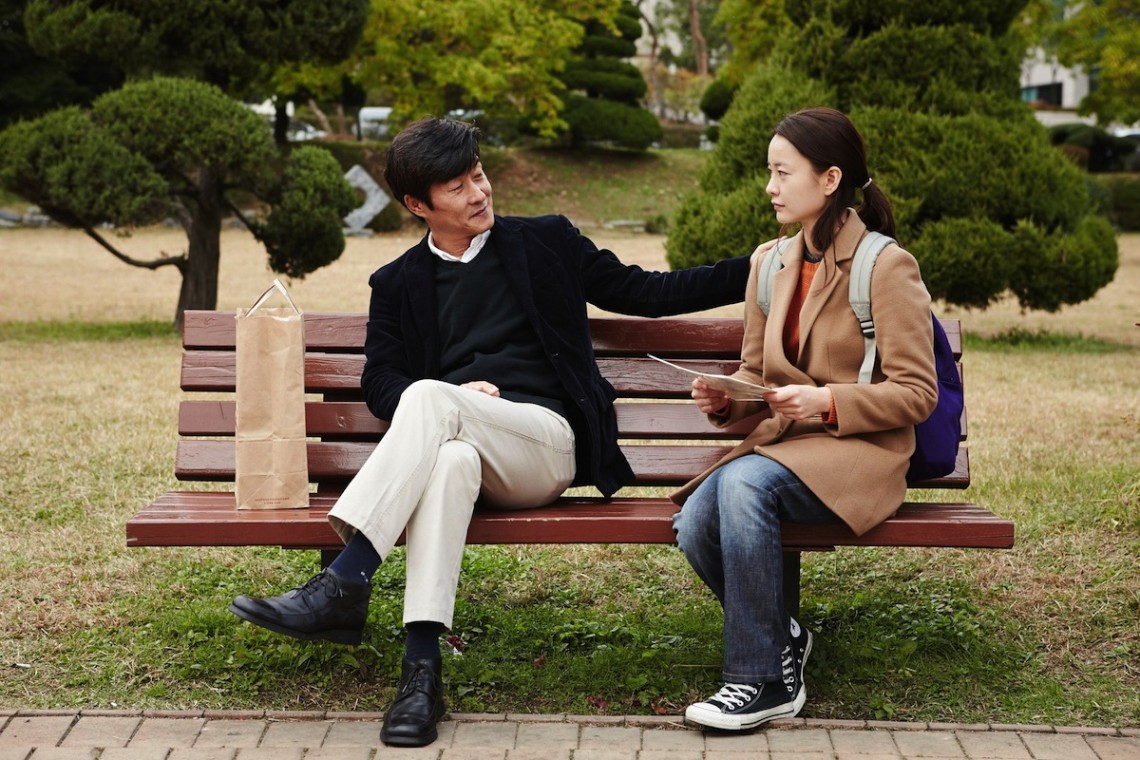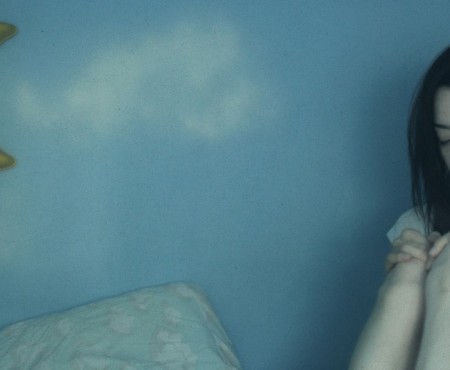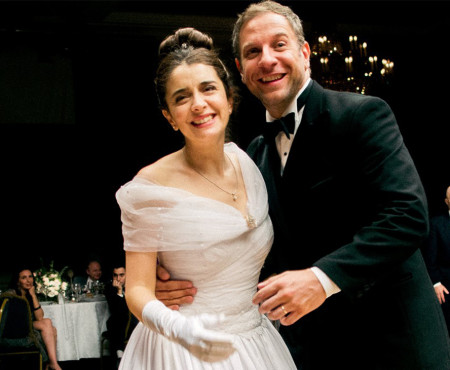There are blind spots in every cinema lover’s list of films that they have seen, and then there’s whatever I have with Hong Sang-soo. Until this year, I had never even heard of the man. And once I had, I discovered that a good deal of critics and movie lovers whom I respect all have a great deal of affection for his work. Unlike them, I came into Our Sunhi without much of a clear idea of what to expect. That’s not a common experience for me with established filmmakers. But based on Our Sunhi, I certainly want to seek out more of Hong’s work.
Sunhi (Yoo-mi Jung) is a recent film school grad seeking a recommendation letter from an ex-professor for a graduate study program in America. In addition to her teacher, Donghyun (Sang-joong Kim), her return to her old school brings her into contact with her ex-boyfriend Munsu (Sun-kyun Lee) and his friend Jaehak (Jae-young Jung). All of their encounters involve copious amounts of soju which, in combination with Sunhi’s ineffable charm, causes all three men to fall for her. Which is somewhat inconvenient, since she really just wants to get a good recommendation and get out of there.
Everything about Our Sunhi feels breezy. It’s 90 minutes long but feels much shorter. The film consists entirely of simple conversations between characters, shot with almost no flourish. The acting is grounded and naturalistic, built on casual postures and subtle movements. Yet despite this lightness, the movie is a very filling experience. You don’t come out feeling like it was lacking something. The work is assured and the effervescence is deceptive – the movie has deep consideration going on underneath.
Our Sushi does an excellent job at suggesting that there’s a lot more to the characters than what we’re presented with. The way they interact truly feels like how old acquaintances do when they’re catching up after long absences. Small gestures and offhand references speak volumes. We tend to think of “world building” as something left to the realm of genre fiction, but a lot of art works by building itself on a fictional history, so that there’s a context for the way the characters act. Our Sunhi pulls it off exceptionally well.
The film is also funny, frequently and richly. Much of the humor comes from the use of certain words and phrases which get passed from character to character and repeated in different contexts. All of these phrases have to do with Sunhi, and originate in Donghyun’s half-assed reference letter for her. It ties in to the film’s underlying theme of how perception can be shaped by expectation and telling oneself that something is true. As a style of humor, it reminded me, strangely but not unfavorably, of how Arrested Development made great use out of catchphrases. Sometimes the film just has fun with the characters grappling with cliched ideas, like Munsu drunkenly insisting that he needs to “dig deeper” to find himself.
Our Sunhi feels light as whipped cream when you’re watching it, but becomes something more rewarding once you give it some thought. It was one of the more pleasant surprises of AFI Fest, and a good introduction to Hong’s work.



















